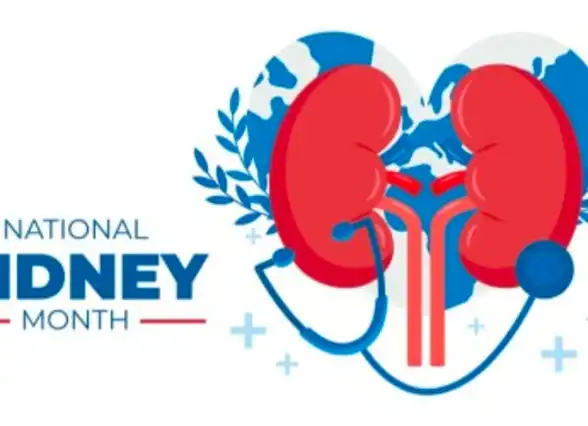What to Know About Kidney Health and Function
Unless your loved one has kidney problems, you may never have considered them. Here are some tips on preserving kidney function.
Get insurance benefits, legal documents, and medical records in one place

Helpful Highlights
Kidneys are as essential as the heart, lungs, liver, and brain. Life is not sustainable without at least one.
33% of adults in the U.S. are at risk for kidney disease. That’s 1 in 3 people.
Kidney disease often goes undetected until it is in advanced stages.
It is imperative to find kidney disease before serious problems start. The National Kidney Foundation (NKF) offers a Kidney Risk Quiz to help your loved one determine their risk for kidney disease.
Why are kidneys important? What do they do?
Kidneys do many amazing things within the body to maintain balance and adequate health. They work very hard and, even when damaged, will continue to compensate until they absolutely cannot function any longer.
Kidneys regulate the body's fluid levels, filter wastes and toxins from the blood, maintain a balance of essential minerals like sodium, potassium, and phosphorus, release renin - a hormone that helps regulate blood pressure, release epoetin - a hormone that directs the production of red blood cells, and activates vitamin D for healthy bones.
Therefore, diseased kidneys can cause high blood pressure, heart disease, heart attack and stroke, anemia, weakened bones, nerve damage (neuropathy), and kidney failure (also known as end-stage renal disease or ESRD).
Keeping kidneys healthy
The following are things we should all be doing, regardless of age, to keep our kidneys healthy and functioning properly:
Get yearly check-ups
Quit smoking
Stay well hydrated (at least 64 ounces of water daily, unless restricted by a provider)
Adhere to a balanced, heart-healthy diet
Exercise regularly
Control weight
Keep alcohol consumption to a moderate (preferably low) level
Monitor cholesterol
Get adequate sleep
*If your loved one already has kidney disease, in addition to those interventions listed above, they should also lower blood pressure, manage blood sugar levels, reduce sodium (salt) intake, avoid NSAIDs (ibuprofen, naproxen), consume protein (meats, eggs, tofu) in moderation, increase intake of fruits and vegetables, and get an annual flu shot.
Primary risk factors for kidney disease and damage
Diabetes - #1
High blood pressure
Heart disease
Obesity
Family history of kidney failure, heart disease, or diabetes
Other risk factors for kidney disease
Age 60 or older
Low birth weight
Prolonged use of NSAIDs, such as ibuprofen and naproxen
Lupus, other autoimmune disorders
Chronic urinary tract infections
Kidney stones
Symptoms and testing
Early kidney disease may not have symptoms, making early detection is critical. By the time your loved one has symptoms, kidney disease may be advanced, and symptoms can be misleading. If your loved one is exhibiting any of these, discuss them right away with their provider.
Unexplained fatigue or weakness
Increased need to urinate (especially at night)
Difficult, painful urination
Pink, dark urine (indicates blood in urine)
Foamy urine
Increased thirst
Puffy eyes
Unusual swelling in the face, hands, abdomen, ankles, or feet
If your loved one is high-risk or has any of these symptoms, their provider will order tests that look into kidney function, such as tracking blood pressure, checking for protein in urine, and measuring glomerular filtration rate (GFR). The provider may want to perform other tests as well, looking at things like blood urea nitrogen (BUN), creatinine, complete blood counts, and other factors before determining if advanced testing is required.
RESOURCES
National Institute of Diabetes and Digestive and Kidney Diseases (NIDDK)
National Kidney Foundation (NKF)
No content in this app, regardless of date, should ever be used as a substitute for direct medical advice from your doctor or other qualified clinician.
Get more support and guidance on insurance benefits, medical records and legal forms.
Helpful brings together your insurance benefits, legal documents, and medical records in one personalized place — so you always know what you have, and never have to search again.

Technology for Health Tasks. Mental Health for the Tough Stuff.
Helpful connects your medical records, insurance, and caregiving tasks automatically. And when you need more than logistics, a therapist is here to guide you.
In-Network and Covered
For Individuals, Couples and Families
HIPAA Compliant, Data Stays Private


Healthcare Tasks Simplified

From syncing records to spotting drug interactions, Helpful does the heavy lifting, turning complex health info into clear tasks and showing you benefits you can actually use, giving you clarity and control over your care.

In-Network Mental Health

Our licensed therapists are here to support you and your loved ones through stress, burnout, and life’s hardest moments, with an inclusive, compassionate approach that works with most insurance plans.

Create Legal Documents

Plan ahead by creating will, trusts, advance directives and more, that ensure your wishes are honored in the event you can’t speak for yourself -with Helpful guiding you every step of the way.